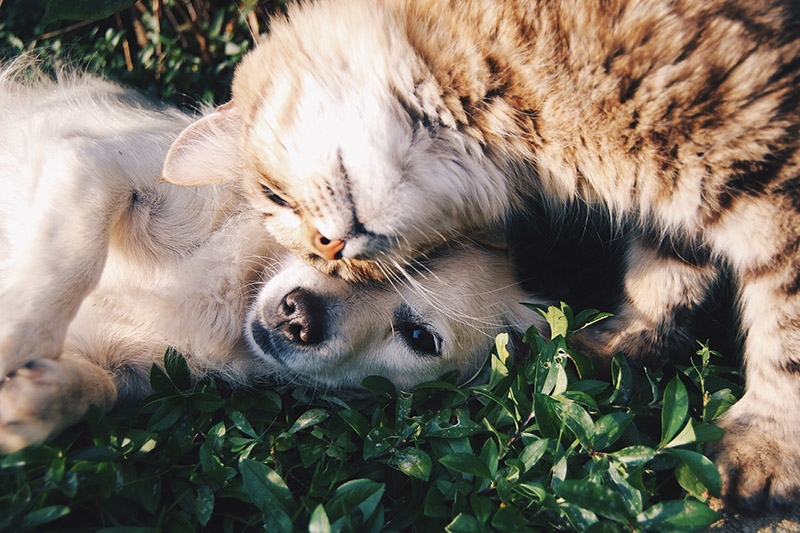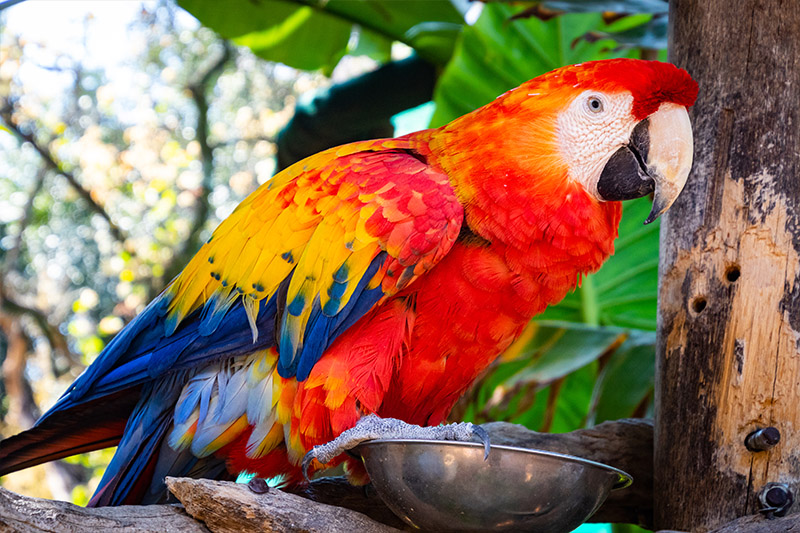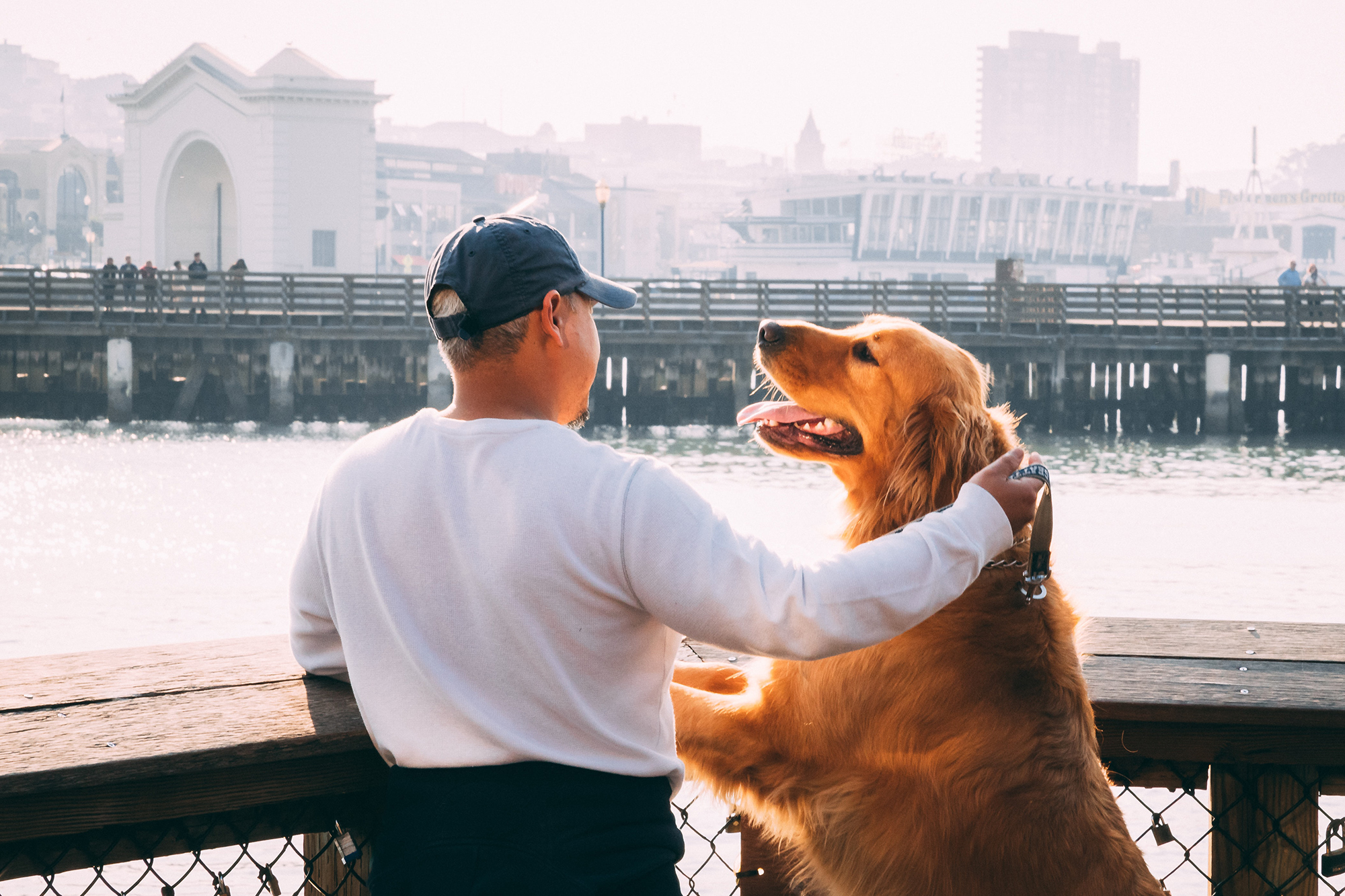
Dogs and Cats
The correct paperwork is critical to ensuring your pet's safety. If the documentation does not address all import and export country requirements, your pet could be refused, quarantined for up to four months or returned to the origin and further fees could be charged. Please visit USDA's APHIS website for detailed instructions and information for all import and export country requirements.
Health certificates
Please bring two copies of the health certificate — the original and one extra — issued and signed by a licensed veterinarian.
The Health Certificate must include the issuing facility name or state/country, the veterinarian’s address and contact information (phone number or email address), as well as the licensed veterinarian’s name and signature. It must also be dated within 10 days of the animal’s arrival at its destination.
A foreign health certificate may be accepted for domestic travel only when the shipper provides a copy of the air waybill or other supporting documents showing how the animal entered the United States.
We want to make sure your pet has a safe and smooth journey, so please make sure your pet's health certificate includes all this required information:
- Your pet's breed, weight and date of birth or age
- If the words "mix" or "mixed" are used to describe the pet, then the predominant breed must be referenced
- Animals must also be 8 weeks old in order to travel. Dogs must be at least six months old to travel internationally.
- Statement that your pet was examined by a veterinarian stating that your pet was found to be free of infectious or contagious diseases that might put your pet, other animals or public health at risk. This should also confirm that your pet appears to be healthy enough for travel.
- Your pet's pretravel exam and health certificate must be dated within 10 days from the animal’s arrival at the destination.
- An English translation of the health certificate if your pet is traveling internationally before or after traveling with American
Electronic health certificate
Electronic health certificates are acceptable with a certificate number and a proper license. The United States Department of Agriculture (USDA) Pet Travel website has information about which countries will accept electronic certificates, along with other specifics. For example, in the U.S., if shipping domestically using an electronic health certificate, an ink signature is not required. For other countries, an ink signature may be required.
Round-trip flights
For animals traveling round-trip within the U.S., the original health certificate may be used for the return journey providing the return occurs within 10 days of the date the certificate was first issued. Otherwise, a new health certificate will be required for the return journey. Some countries’ health certificates have time frame requirements of less than 10 days, so be sure to check the country’s guidelines if your pet is traveling internationally.
Find an accredited veterinarian near you »
Pregnant animals and health certificates
Please ensure the licensed veterinarian clarifies that the animal is fit to travel and there is no risk of birth occurring during the entire journey. If the health certificate states the animal has given birth, time of tender must be greater than 48 hours post whelping to be accepted for carriage. Females with suckling young and un-weaned animals will not be accepted for carriage. Animals must be 8 weeks old in order to travel.
Rabies vaccination certification
Please bring one copy issued and signed by a licensed veterinarian in accordance with local timeline regulations. If your dog or cat is less than 12 weeks old, they are not required to be vaccinated.
Breed verification form
For the animal's safety, we've standardized our breed verification. This will help veterinarians provide consistent and accurate information about all dogs and cats to ensure that your pet is on the approved breed list.
This breed verification form is required for all cats and dogs and must be signed by a licensed veterinarian. If the animal is a mixed breed, then this form must state the predominant breed with the word "mix" or "mixed".
Breed verification (ENG) »
Breed verification (ESP) »
Commercial shipper vet form (PDF) »
Temperature acclimation documentation
If ground temperatures are between 20 and 44 degrees Fahrenheit, we require you provide an acclimation letter signed and dated by a licensed veterinarian. The letter must state the exact lowest temperature — between 20 and 44 degrees Fahrenheit — that the animal may be exposed to. This applies to origin, connection and destination cities.
Find complete information on our temperature policy here.
Please note that if your health certificate also includes an acclimation certificate, there is no need to complete the letter below. We only need one certified acclimation statement.
Customer acknowledgement form
We ask that each customer sign the acknowledgment form to confirm that they have followed the steps necessary to prepare their pet for safe travel with us. The customer's signature on this required form lets us know that they have reviewed and accept the statements included.
Customer acknowledgment form (ENG) »
Customer acknowledgment form (ESP) »

Exotic/Wild Birds
Transportation for wild or exotic birds is restricted to our on-line service only. If you are transporting wild or exotic birds, you will need to state — both in writing and on letterhead — whether the birds were:
- Born in captivity on special farms, or
- Being shipped to or from a zoological garden, sanctuary, preserve, rehabilitation center, medical agency or government wildlife agency
Certification requirements
- Birds shipped to San Juan, Puerto Rico and Honolulu, Hawaii require a health certificate
- Birds to/from international locations require a health certificate
- Commercial domestic-to-domestic birds, and day-old chicks do not require a health certificate
Permits
Visit the U.S Fish and Wildlife Service to determine whether your pet’s species is listed under domestic and international law, and whether you need a permit.

Primates
Health certificates
Please bring two copies (the original and one extra) issued and signed by a licensed veterinarian within 10 days of travel for both the outbound and return trips. Primates must be at least six months old, weaned and tendered at a cargo terminal.
We will not accept primates used for laboratory research, experimentation or exploitation purposes.
Primates may only be accepted for transportation when:
- The shipper or the agent certifies the primates being transported were born or bred in captivity on special farms. One of these documents must accompany the air waybill.
- This certification must be on the shipper's letterhead and accompany the air waybill
- The primates are being transported from or to a zoo sanctuary, preserve or rehabilitation center
- The transportation is restricted to American Airlines on-line service only.

Other Animals
For all other types of animals, consult the website of the destination country for specific requirements. The IATA shipper's certification is required for U.S. outbound international or interline transfer shipments. Also, please read the IATA shipper's instructions and responsibilities.

International Travel
We require that international pet transport requests originating outside the U.S.be handled by an IATA-regulated freight forwarder or professional pet shipper with an American Airlines Cargo PAL and billing account.
This requirement does not apply to anyone shipping internationally from the U.S., but we do recommend using a professional pet shipper to ensure a smooth process. IPATA professionals specialize in pet travel preparation and procuring your required documents, including health certificates, import/export permits and paperwork for freight forwarders and customs brokers. IPATA members also work closely with you to focus on your pet's well-being.
Here are some important things you should know when planning international pet travel:
For animals being transported to an international destination, visit the USDA-APHIS Pet Travel site for your destination country's documentation requirements. These requirements can include vaccinations, testing and arranging for import permits — which can take weeks or months to complete prior to travel. We recommend starting this process as soon as you know your destination.
If you don't comply with all the destination country's requirements, you risk the animal being refused transport, being subject to quarantine or being returned to the United States at your expense. Contact the USDA-APHIS Customer Service Call Center at 844 820 2234 or visit the USDA-APHIS Pet Travel site for import requirements.
For animals being transported internationally to the EU, the APHIS Form 7001 is not required for entry when a valid USDA endorsed health certificate is presented.
For animals being transported internationally, the International shippers certificate must be completed. Lab mice and rats do not require a health certificate, shipper's certificate or acclimation letter unless otherwise specified by the state or country of destination.
For exotic animals, visit the U.S Fish and Wildlife Service to determine whether your pet's species is listed under domestic and international law, and whether you need a permit.
The embassy or consulate in your pet’s destination country can give you details to make sure you follow all the country-specific entry procedures.
You or your pet shipper are responsible for making sure that all destination specific pet entry requirements are met, including state, county or city regulations. Make sure you and your shipper discuss customs clearance and/or freight forwarder needs, so you’re clear on the process in advance, and so your pet doesn’t get delayed during travel.
Certain breeds and animal species are not allowed into some countries.
We strongly recommend that you discuss your pet's travel plans with a veterinarian well before their travel, to make sure your pet meets all the import regulations and is ready for travel.
Need help clearing customs into the U.S.? We can help
We have partnered with Coppersmith Global Logistics to assist your pet in clearing customs in the U.S. Coppersmith works under power of attorney to arrange for the clearance of your pet through the U.S. governmental regulatory agencies. Coppersmith will work closely with the importer to ensure all information is correct and complete prior to loading. Then, they will electronically file for release before your pet even arrives in the United States.
Let either your sales representative or your pet transport professional know you're interested in using Coppersmith to make your pet's international travel experience as smooth as possible.